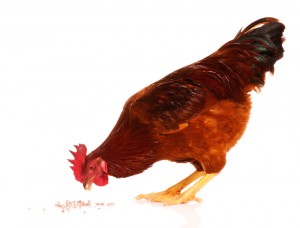The USDA’s Agricultural Marketing Service (AMS) has issued a proposed rule covering requirements of the welfare of organic livestock. These changes are based on recommendations by the National Organic Standards Board.
 AMS Administrator Elanor Starmer said in a statement, “the demand for organic agriculture continues to grow each year and these proposed changes will build on USDA’s efforts to support organic producers. By strengthening standards for organic livestock and poultry, we are ensuring that we meet consumer expectations and maintain the integrity of the organic seal to support the sector’s continued growth. This proposal sets clear standards for organic animals, providing clarify to organic operations and certifying agents, and establishing a level playing field for all producers.”
AMS Administrator Elanor Starmer said in a statement, “the demand for organic agriculture continues to grow each year and these proposed changes will build on USDA’s efforts to support organic producers. By strengthening standards for organic livestock and poultry, we are ensuring that we meet consumer expectations and maintain the integrity of the organic seal to support the sector’s continued growth. This proposal sets clear standards for organic animals, providing clarify to organic operations and certifying agents, and establishing a level playing field for all producers.”
Provisions of the new regulations include clarifying how producers and handlers must treat livestock and poultry to ensure their health and wellbeing throughout life, including transport and humane slaughter. They also specify which physical alterations are allowed and prohibited in organic livestock and poultry production, and establish minimum indoor and outdoor space requirements for poultry.
The proposed rule will be available in the Federal Register soon. Public participation and comments are invited, especially from the organic community, stakeholders, and consumers. Comments will be accepted for the next 60 days.
Center for Food Safety issued a statement about this proposed rule. Paige Tomaselli, senior attorney at Center for Food Safety, said in a statement, “organic is the most comprehensive standard for agriculture and so it must promote sound animal welfare principles. To be effective, that standard must include necessary safeguards to ensure animals are well-fed, healthy, have access to the outdoors, and are raised in an environment that allows them to engage in natural behaviors and are humanely slaughtered.”
One of the parts that interest animal rights groups the most is the welfare of egg-laying poultry. These guidelines must include information about calculating the space available to birds, and prohibiting producers from considered concrete porches attached to poultry houses “outdoor access.”
The Humane Society says that poultry farmers who label eggs “cage free” are actually not required to let the hens go outdoors. And no designation on egg labels, whether “cage free,” “free-range,” “free-roaming,” “pasture-raised,” or “certified organic,” requires that beak-cutting and starvation-based forced molting are prohibited. Some voluntary programs prohibit one or both of these practices. Certified organic birds are the only egg-laying poultry group that must be fed organic, vegetarian feed that is free from pesticides and antibiotics.
This rule is the first to actually regulate organic animal production, even though standards have long been in place. Tomaselli added, “this is an issue of consumer confidence in organic as much as it is an issue of animal ethics. U.S. consumers expect that organically certified meat and animal products are produced with a higher standard of animal welfare protections than non-certified organic products, and until now, there has been no way of ensuring that is the case. We are hopeful that this long-awaited rule is a step in the right direction toward implementing strong welfare practices and maintaining consumer faith in the name ‘organic.'”




